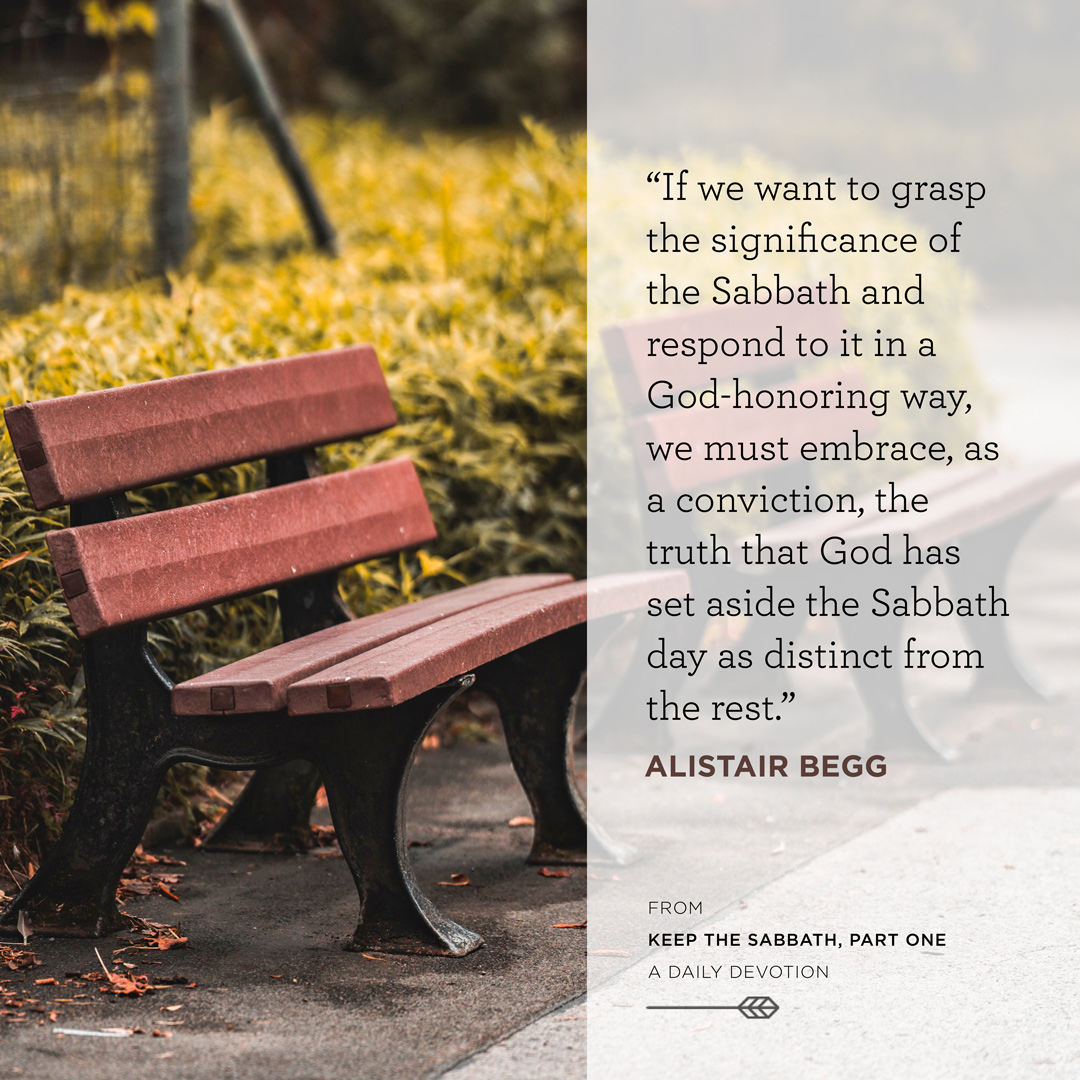Do the Ten Commandments Still Matter?預覽

KEEP THE SABBATH, PART ONE
“Remember the Sabbath day, to keep it holy.” EXODUS 20:8 (ESV)
Throughout history there have been well-meaning, earnest Christians who have, perhaps without knowing it, functionally believed that the Ten Commandments are really only the Nine Commandments. Somewhere along the way, some have decided that the fourth commandment is not like the rest of the commandments but rather is a relic that belongs in the past. In truth, though, the command to remember the Sabbath and keep it holy has abiding significance for us all, even today.
Why has this simple command fallen on such hard times? Some have claimed that its regulations and penalties were tied to the old covenant, so it must no longer be relevant. Yet we don’t treat the other commandments this way. Others have said that the way Jesus spoke of being “lord of the Sabbath” (Matthew 12:8) diminished the commandment’s significance and force. But what Jesus sought to overturn was not the Sabbath itself but the external rules of the Pharisees.
I suspect that what keeps most Christians from thinking of the fourth commandment as we ought to is simply that we don’t like its implications. We don’t like the way it intrudes into our lives, our leisure, and whatever else takes precedence in our hearts. And so we act as though this command is in a different category from the other nine.
If we want to grasp the significance of the Sabbath and respond to it in a God-honoring way, we must embrace, as a conviction, the truth that God has set aside the Sabbath day as distinct from the rest. This was the case in the week of creation, with God resting on the seventh day and declaring it sanctified. The church, in the age of the new covenant, then changed the day from the seventh of the week to the first to mark the resurrection of Christ. In both cases, we see that the distinction of the day is woven into God’s work of creation and redemption.
With that conviction in place, we can see that the day is not simply a day set apart from other days, but it is a day set apart to the Lord. If we don’t see it this way, we will be tempted to view our spiritual exercises on the Lord’s Day as something to “get over with” in order to “get on with” our week. If this is our mentality, we stand condemned by the fourth commandment.
The Sabbath ought to be treasured for what it is: a gift of a day on which we enjoy, uninterrupted by leisure commitments or (if at all possible) by employment, the privilege of God’s presence, the study of God’s word, and the fellowship of God’s people. Seen like that, this command becomes an invitation: not only something we should do but something we will love to do. If this is not how you have been viewing God’s Sabbath, then ask yourself: What’s preventing you from honoring the Lord’s Day? Take stock of your habits and receive the gift of the Sabbath. From next Sunday, be sure that your priority is not to make the Lord’s Day convenient but to keep it holy.
- How is God calling me to think differently?
- How is God reordering my heart’s affections—what I love?
- What is God calling me to do as I go about my day today?

關於此計劃

The Decalogue—i.e., the Ten Commandments—is perhaps the most famous list in human history. But does it still apply to 21st-century Christians? In this plan, you’ll learn about each commandment and read why this code of conduct is as relevant today as it was when God delivered it to Moses.
More









